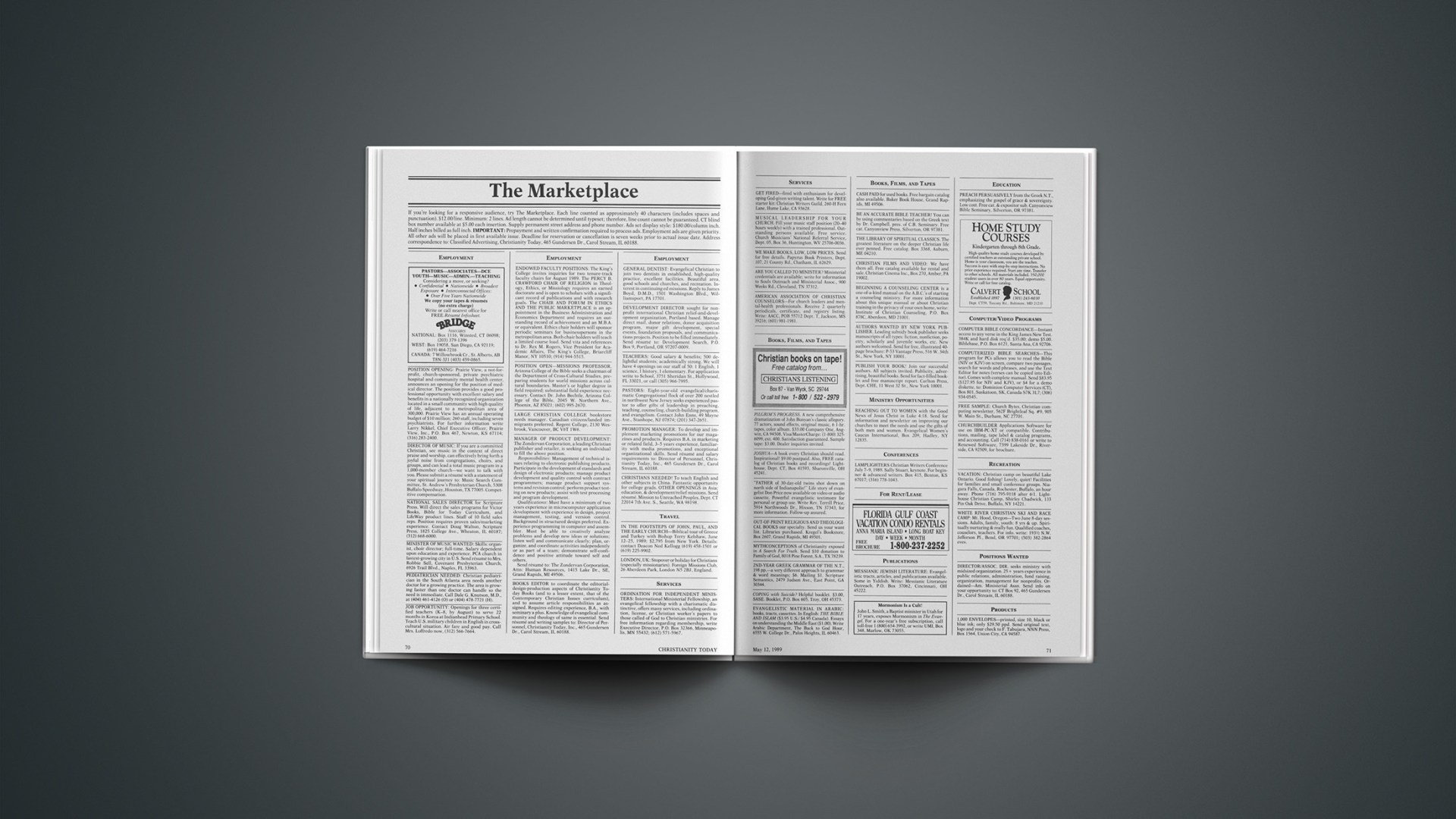December 6, 1988: the day Mikhail Gorbachev took Manhattan. He pumped hands on Fifth Avenue; he waved and smiled; he bantered with reporters.
We met the enemy—and he looked suspiciously like a genial, balding candidate for city council. Was this the current slavemaster of the Evil Empire?
Forty years of Cold War distrust seemed to melt. Posed with Gorbachev and George Bush in front of the Statue of Liberty, then-President Reagan, chilliest of the cold warriors, proclaimed Gorbachev “a new kind of Soviet leader.”
Last June, polls showed that 60 percent of Americans believed the Soviet Union a serious threat to national security. But after Gorbachev’s triumphant New York visit, there was a dramatic turnaround: 54 percent now said the Soviet threat was minor or nonexistent.
Is this newfound trust justified?
Perhaps. In his United Nations speech, Gorbachev announced significant troop and tank reductions. He has eased some internal restrictions on free expression and made some economic reforms. While tentative, his changes are real.
But before our nation is swept away on a tide of euphoria, we must look deeper—particularly we who are Christians. Augustine said we are to be the best of citizens; that means we should be the wisest of citizens. What insights can we bring to Gorbachev’s bold, new role in the West?
A Question Of Motives
There are at least three possible reasons why Gorbachev is pursuing a new standard in Soviet public relations.
First, he may be a genuine social reformer—sort of a communist version of Franklin D. Roosevelt—who is less interested in ideology than in trying to improve the dingy lot of the Soviet worker.
How wonderful! Our most pressing political and military problems solved by our adversary cooperatively ceasing to be our adversary.
Second, Gorbachev may simply be a pragmatist forced into his reforms by economic necessity. The Soviet Union spends 20 percent of its GNP on its military—three times the proportion of the U.S. And in 1987, the Soviet Union earned only $35 billion abroad in sound money—about half of General Motors’ annual sales. At the same time, billions were drained off to keep Vietnam, Angola, Nicaragua, and Cuba afloat.
While twentieth-century weapons and foreign aid bleed their economy, Soviet citizens live in the nineteenth century. Seventeen percent of rural district hospitals have no running water. Twenty-seven percent have no sewage system in this Third World country with First World weapons.
The third and most cynical option is that Gorbachev’s internal reforms are primarily intended for external consumption—a ploy to fan the winds of neutrality and appeasement in Western Europe. Already 80 percent of West Germans say they no longer feel threatened by the Soviets; resentment is growing over the U.S. military presence. Gorbachev’s reforms may succeed where Brezhnev’s threats failed.
Once A Communist …
Of these three alternatives, the first may be the most popular, but it is also the least plausible. In 1987 Gorbachev—who, after all, was sponsored in power by KGB chief Andropov—promised the Communist Central Committee, “We will not retreat an inch from the path of socialism—of Marxist-Leninism”—a pledge he has often repeated.
The first part of Gorbachev’s two-part program is perestroika, or restructuring—the encouragement of small-scale free enterprise as an incentive to production. It is an idea as old as Lenin’s New Economic Policy of the 1920s. Then, as now, it was intended as a set of reforms within socialism to save socialism—not an attempt to change the system.
The second part of Gorbachev’s reform is glasnost, or openness—a new tolerance of free expression. Some restrictions have been lifted on art, literature, political dissent, even religious expression. But glasnost could disappear as quickly as it has been given.
The point is, Marxism can never be fundamentally reformed. Its defining principle insists that it ride the irresistible wave of history, providing both a new way of life and a new type of man, sweeping away the old order before it.
If Mikhail Gorbachev is not an idealistic social reformer, then he is either economically or politically driven. I believe he is a mixture of both. The Soviets have economic troubles, but they also have strategic world objectives—which are in direct conflict with the West. No matter what we would like to believe, the fact is, the Soviet commitment to socialism prevents it from renouncing those global designs.
The Allure Of Appeasement
I read the poll revealing new American attitudes toward the Soviets just as I was finishing The Last Lion: Alone, William Manchester’s best-selling biography of Winston Churchill. In it Manchester describes Britain’s descending spiral of appeasement and concession toward Nazi Germany in the 1930s.
Prime Minister Neville Chamberlain, supported by a majority of the British people, rationalized each of Hitler’s aggressions—into Austria, the Rhineland, Czechoslovakia—and grasped at every conciliatory statement Hitler made as evidence that he would stop.
But the British deluded themselves. And, as Harold Macmillan writes, “It was this fearful misconception about the nature of dictators that was the root cause of much that went amiss in those tragic years.”
And in the end, of course, Chamberlain’s profound desire for peace led directly to war. Manchester writes, “So, with their eyes open, they sought accommodation with a criminal regime, turned a blind eye to its iniquities … until … they led England herself into the cold damp shadow of the gallows.”
Today’s situation in the West is obviously far different. But while historical situations change, the lessons of history do not. Nor does human nature. And Christians, who are particularly aware of man’s depravity, must maintain a healthy skepticism toward Moscow.
Yes, Gorbachev may smile and sing and toast us all, and it is good that we toast him back. But we must not be deluded. While the polls may reflect the way we would like things to be, international policy must reflect the way things are.










